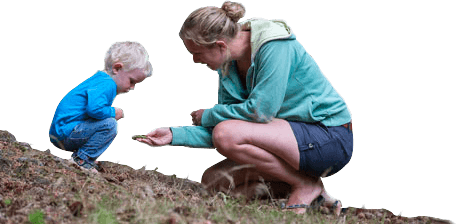Swifts – spectacular birds which need our help
PUBLISHED ON: 31 MARCH 2024By Catharine Gale, Trustee of Hampshire Swifts
Swifts are supreme flyers, perfectly adapted to a life in the air. They sleep, feed and mate on the wing and only land to breed. When a swift chick fledges, it will spend the next three to four years in constant flight: Swifts do not land on the ground or perch on buildings, trees or cables. They have tiny feet, with sharp claws that are perfect for clinging to vertical surfaces, but unsuitable for perching.
Swifts eat flying insects. These are most numerous between May and August. That determines how long swifts can spend in the UK as they need huge numbers of these insects to feed their chicks. Unlike swallows and house martins who eat a wider variety of insects and can therefore have two or three broods of chicks during the summer, swifts have a single brood.
2000 years ago, swifts nested in holes in trees or in cliffs. Now that is rare, and swifts are entirely dependent on buildings for nest sites. They look for small gaps high up where they can access a flat space to nest, such as under tiles or eaves, so the nest is invisible from the outside.
Modern building techniques mean that houses built in the last 30 or so years rarely have any gaps, so most swifts nest in older buildings. Thousands of nest sites are lost each year when buildings are demolished, or renovated, or when plastic soffits and fascias are installed. Swifts are faithful to their nest site, so once a pair find a site, they will return to it every year. If they return and find it has been destroyed or is inaccessible, they may not breed that year unless a new nest site is available nearby.
Sadly, swifts are in catastrophic decline. Since 1994 their population has dropped by 62% in the UK and by 70% in the South East, including Hampshire. Loss of nest sites is the major contributor, while declines in insects may also play a part. House sparrows and starlings are also experiencing steep declines, and they too rely on buildings for nest sites.
Preserving existing nest sites and providing new nest sites is crucial to prevent swifts becoming extinct in the UK. Thousands of new nest sites are needed to halt the decline.
Hampshire Swifts is a charity set up in 2016 with the aim of stopping the decline of this special bird and increasing their numbers. We give advice on everything related to swifts.
We supply and install swift boxes – £40 for a single box, £75 for a double box. We provide advice on creating permanent homes for swifts using swift bricks and work to persuade local councils and developers to install these in new buildings.
How can you help swifts? Preserve existing nest sites, put up nest boxes, encourage your neighbours to put up nest boxes, and record where they are nesting on the Hampshire Swifts survey website (https://www.hampshireswifts.co.uk/swift-survey).
Swifts are amazing and beautiful birds. The sound and sight of them racing, screaming over our rooftops is exhilarating and an essential part of summer. Let’s make sure that continues.
For advice, or if you’re interested in having swift boxes on your house, email info@hampshireswifts.co.uk.
Photo by Robert Booth

